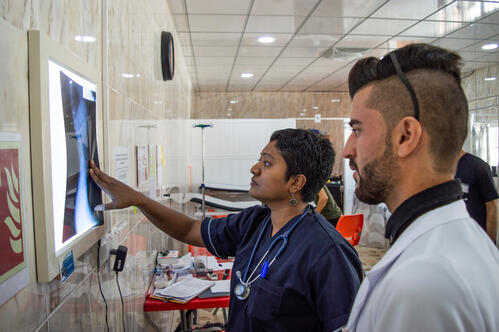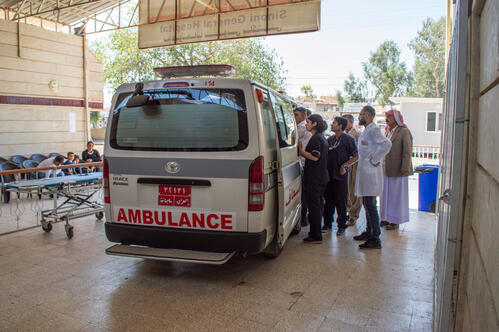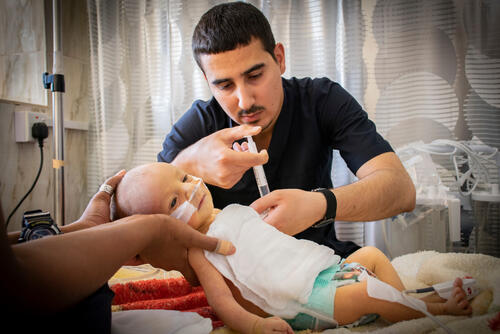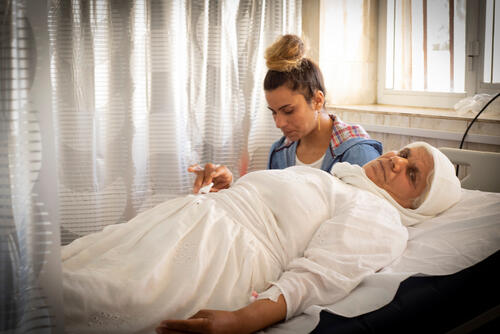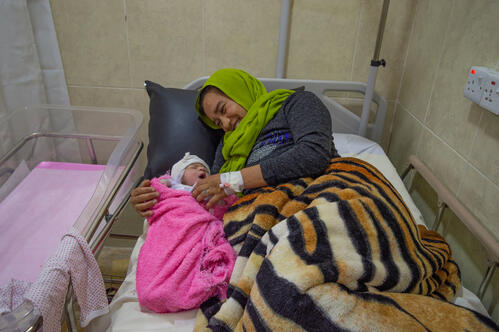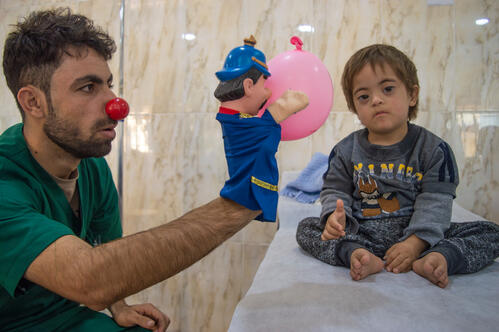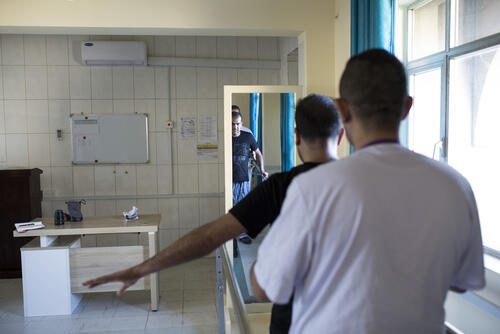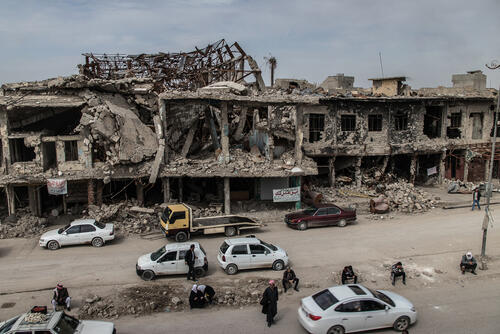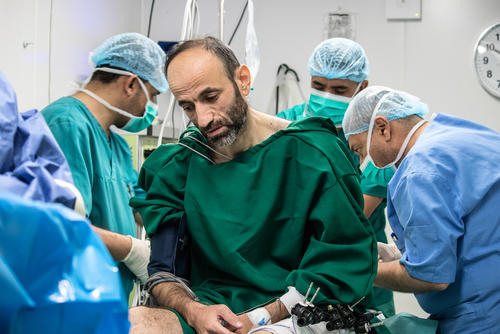Médecins Sans Frontières (MSF) has launched activities in Sinuni General Hospital, in Sinjar district, Iraq, in collaboration with the Iraqi Directorate of Health, to help cover the urgent need for secondary healthcare services for people returning to the region.
MSF has started activities in Sinuni, the most densely populated town in Sinjar district, after observing that very few services existed beyond primary healthcare, with emergency, maternity and paediatric services notably absent.
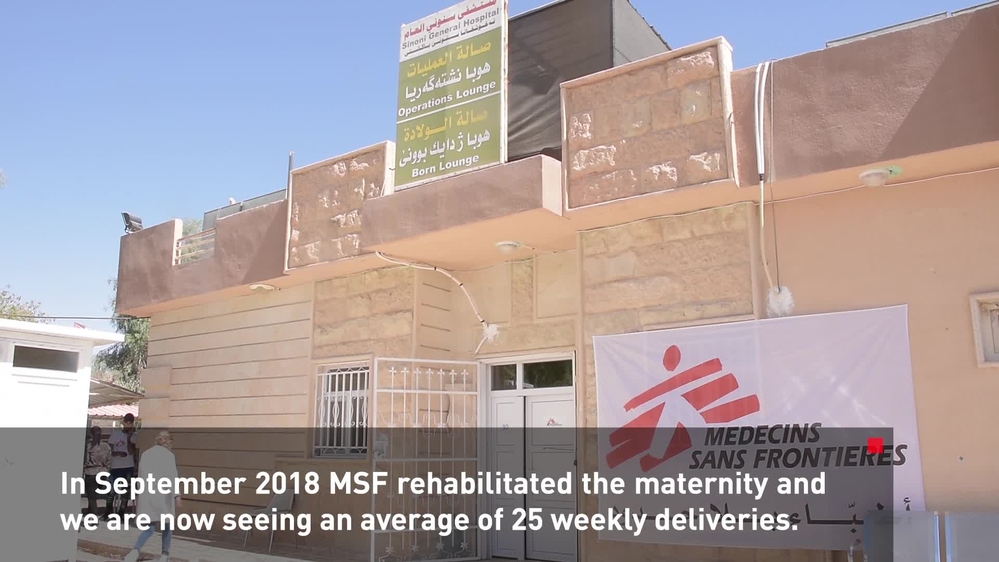
Inside Sinuni hospital
For people living across Sinjar district, accessing quality healthcare services has been incredibly difficult since the area was taken over by the Islamic State group (IS) in 2014, and the subsequent military offensive to retake the area.
“Access to healthcare in Sinjar has been drastically compromised by severe damage to medical infrastructure, the displacement of health professionals, and ongoing insecurity in parts of the governorate” said Morris N. Ramnaps, MSF’s field coordinator in Sinuni.
Since July 2018, MSF has been supporting Sinuni General Hospital, rehabilitating and running the emergency department. This includes an ambulance service for referral to follow-up care, and the only maternity facility equipped with an operating theatre in the area.
We are now seeing an average of 25 deliveries every weekPriscillah Gitahi, MSF’s medical team leader in Sinuni
“The number of patients in the maternity is increasing since we reopened the service. We are now seeing an average of 25 deliveries in our facility every week,” said Priscillah Gitahi, MSF’s medical team leader in Sinuni.
MSF teams have also reported that due to the history of violence in this part of Iraq, Yezidis sometimes feel uneasy and reluctant to accept medical referrals to far-away facilities in cities like Mosul or Tal Afar.
By the end of 2018, MSF will start providing mental health services in Sinuni due to the high demand and need for trauma-related psychological counselling, psychiatric care and pharmacological treatment of mental illness in the region.
“MSF is also working to increase access to follow-up tertiary care, as 90 per cent of the referrals from Sinjar to facilities in other regions are supported by MSF,” explained Ramnaps.
Since the end of the military offensive in November 2015, people have been relatively slow to return to Sinjar. The number of people currently living across the district is close to 100,000 – made up mostly of Yezidi community members. Before the crisis, the district had a multi-ethnic population of around 400,000 people.
Slow returns in Sinjar district are caused by a number of factors, including the extensive destruction of infrastructure and homes in the district, especially on the south side of Mount Sinjar, and the very limited access to basic health and education services.
MSF has been working in Iraq since 1991. With more than 1,500 staff, MSF provides free, quality healthcare for all people regardless of race, religion, gender or political affiliation.
MSF delivers primary and secondary healthcare including services for expectant and new mothers, treatment for chronic diseases, surgery and rehabilitation for war-wounded, mental health support and health education activities.
We currently work in Erbil, Diyala, Ninewa, Kirkuk, Anbar governorates and Baghdad.



